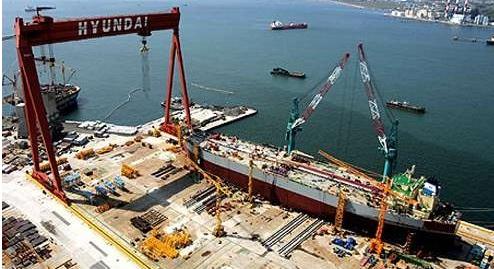Parliamentary hearing fails to find truth about troubled shipping industry

Major witnesses failed to show up on the first day of parliamentary hearings this week on government bureaucrats’ responsibilities for failed restructuring of Daewoo Shipbuilding & Marine Engineering Co., a troubled shipbuilder. Hong Kyttack, former chairman of the state-run Korea Development Bank (KDB), did not appear at the hearing without providing any reason. He had claimed that the bank had simply followed an order by the presidential office Cheong Wa Dae to provide 4.2 trillion won (3.8 billion U.S. dollars) in financial support for Daewoo. Former Daewoo CEOs Nam Sang-tae and Ko Jae-ho submitted their letters of absence citing their imprisonment, as did Park Soo-hwan, the head of the PR agency News Communications. Choi Kyung-hwan, the then finance minister and a current lawmaker of the ruling Saenuri Party, and Ahn Jong-beom, the then senior presidential secretary for economic affairs, led the Cheong Wa Dae meeting that decided to bail out the troubled shipbuilder. However, they were not even named witnesses to testify at the hearings, casting doubts over the National Assembly’s commitment to finding truths about how such a large amount of taxpayers’ money was wasted on Daewoo.
Asked if the senior officials decided to bail out Daewoo despite their knowledge of its alleged accounting fraud, Finance Minister Yoo Il-ho told the Thursday hearing gave a vague answer, saying they were aware of the accounting risk but decided that they “had to provide that much” funds for Daewoo. His explanation is unconvincing because he was basically saying that they decided to give taxpayers’ money to Daewoo because they were not sure if it was a bad company despite the possibility of being one.
Witnesses who fail to show up at a parliamentary hearing are subject, in principle, to up to three years of imprisonment or a maximum of 10 million won (9,166 dollars) in fines. However, it requires ruling and opposition parties’ agreement to bring them to the prosecution. If Hong had thought he would simply pay the fines, he disrespected the National Assembly and the people. Cho Kyung-taek, chairman of the National Assembly’s Economy, Planning and Finance Committee, said that Hong’s whereabouts were unknown and that he was not subject to a parliamentary order to show up at the hearings. However, Hong should not be overlooked so easily. Thanks to his close ties to a ruling party faction loyal to President Park, he snatched the position of vice president and chief risk officer at the Asian Infrastructure Investment Bank (AIIB) following taking the top post at the KDB, only to lose the AIIB job just four months later in a case of national disgrace. If the ruling party wants to avoid being suspected of trying to protect a pro-Park person, it has to report him to the prosecution.
Former Finance Minister Choi complained on his Facebook page that the nation’s “populist culture hides bureaucrats’ competencies.”
However, the bureaucrats at the parliamentary hearing were far from being competent. Financial Services Commission Chairman Lim Jong-ryong said that he could not collect information on ailing Hanjin Shipping Co.’s consigners and shipping plans. Before blaming the global maritime logistics problems on businesses, they should first reflect on why they do not trust the government. Bureaucrats’ reports to the parliament that only pieced together existing materials show their perception that they could only do their time at the hearings.
On Friday, the last day of the hearings, former Finance Minister Kang Man-soo, ex-KDB chairman Min Yoo-sung, and senior executives at Daewoo and Hanjin are supposed to testify. Lawmakers should get closer to the truths about the food chain that feasted on Daewoo and the logistics chaos. What the public want from the hearings is not lawmakers yelling at witnesses but finding facts.
Source: dongA
HEADLINES
- Do shipping markets want Biden or Trump for the win?
- All 18 crew safe after fire on Japanese-owned tanker off Singapore
- Singapore launching $44m co-investment initiative for maritime tech start-ups
- Cosco debuts Global Shipping Industry Chain Cooperation Initiative
- US warns of more shipping sanctions
- China continues seaport consolidation as Dalian offer goes unconditional